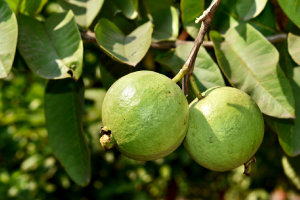

Lion’s mane is a mushroom with medicinal and culinary values. The mushroom was discovered by the Greek physician Hippocrates in 450 BCE. It is well-known for its anti-inflammatory properties and anti-proliferative efficiency. It contains flavonoids, phenol, less amount of carotenoids and ascorbic acid.
Lion’s mane mushroom grows on the trunk of dead or old broadleaf trees such as oak and beech. These mushrooms are found in the forests of North America, Europe and Asia. Both the parts – body and root (mycelium) of this mushroom have health benefits.
Benefits of Lion’s Mane Mushroom
Lion’s Mane benefits are manifold. Some of the benefits are discussed below:
- Improving Brain Function
Lion’s mushroom is nootropic in nature. It promotes brain health and functions. Also, it helps protect against Alzheimer’s disease. This disease hampers the cognitive capabilities of the brain. For example, we can discuss Phytotherapy Research. It shows that adults aged between 50 and 80 years have practised taking 4 lion’s tablets of 250 mg thrice per day. They continued this habit for 16 weeks, and their cognitive capacity improved. They scored higher on the cognitive function scale test than the people who didn’t consume lion’s mushrooms. It was also experimented that after discontinuing this habit, they had loosened their cognitive score.
- Protection from digestive diseases
In Chinese medicine, Lion’s mushrooms are used for curing gastrointestinal issues like stomach ulcers. The disease formed due to the abnormal growth of a bacteria called H.pylori. Basically, it’s caused by long-term utilisation of NSAIDs (non-steroidal anti-inflammatory drugs). If the patient uses Lion’s mane extract for three weeks, then it will develop resistance against ulcer-inhibiting bacteria.
Moreover, the anti-inflammatory effects of this mushroom can reduce ulcerative colitis. Also, it will give a good result on liver inflammation caused by excessive alcohol intake.
- Helping Manage Diabetes
It has an excellent blood sugar management capability. It controls diabetes and protects against side effects like nerve damage, kidney issues, and loss of vision. It creates a barrier to the activity of the alpha-glucosidase enzyme to reduce blood sugar. Thus, it breaks the carbohydrate foods within the small intestine. As the enzyme gets blocked, the human body doesn’t absorb it well. So, it lowers the sugar level.
- Helping with Mild Symptoms of Anxiety and Depression
An abstract from The Journal of Molecular Science shows that Lion’s Mane Mushroom provides a potential treatment option for depression and anxiety. The mushroom provides hopeful results for curing depression. It minimises the loss of nerve growth during stress and inflammation caused by depression and generates sufficient neurotransmitters. Furthermore, it increases the nerve growth factor among people with anxiety and depressive disorder.
- Recovery From Brain and Nervous System Injuries
Lion’s Mane Mushroom has the capacity to create new nerve cells. It accelerates the growth of nerve cells after an injury. It’s the rarest mushroom among the 2000 different species of mushroom, which can recover the nerve cells.
According to a medical study in 2010, Lion’s Mane Mushroom has positive outcomes for traumatic brain injury (TBI). It offers neuroprotective effects to recover from TBI. Specifically, it eliminates oxidative stress and inflammation related to TBI.
TBI may cause further complications like Parkinson’s disease. Lion’s mushroom also has the properties to safeguard against this disease.
- Immunity booster
You can improve gut health by taking Lion’s Mane Mushrooms. Additionally, it strengthens the immune system and helps the body fight with the harmful bacteria. The researchers conducted experiments on the animals and found positive results.
A strong intestine protects our health from pathogens and other bacteria. Also, it contains antioxidants like vitamins C and E, phenol, beta-carotene, and astaxanthin. These also refine immune health.
- Supporting Heart Health
Lion mane hair extract reduces the risk factors for heart, such as cholesterol, blood clots, obesity, and high triglycerides. It decreases triglyceride levels and controls fat metabolism. Significantly, it reduces the rate of oxidation of cholesterol. Oxidation of cholesterol leads to the risk of stroke and heart attack. Hence, lowering the oxidation improves heart health. Moreover, the presence of helicene B dilutes the risk of blood clotting.
Lion’s Mane Mushroom Side Effects
Lion’s Mane mushroom side effects are generally quite minimal or nil for most people when consumed in moderation. However, some individuals may experience mild side effects such as digestive discomfort, including stomach upset, diarrhoea and nausea. Allergic reactions to lion’s mane are rare, but some people may experience difficulty in breathing, itching or rash.
You should exercise caution before consuming lion’s mane mushroom in the following cases
- Since lion’s mane may have blood-thinning effects, individuals taking blood-thinning medication or with bleeding disorders should consult with their doctor before taking it.
- Lion’s mane may have blood sugar-lowering effects, so individuals with diabetes or hypoglycemia should consult with their doctor before taking it.
- Pregnant or breastfeeding women should also avoid lion’s mane supplements as there is not enough research to support their safety in these groups.
As with any supplement or dietary change, it is always recommended to consult a healthcare professional before adding lion’s mane to your diet.
Dosage of Lion’s Mane Mushroom
The right dosage of lion’s mane mushroom depends on the age and overall health of an individual. You can consult a doctor for dosage recommendations.
However, research has shown that taking 3 to 5 grams per day may help cognitive function. For relief from anxiety, depression and sleep disorders of overweight or obese people, the recommended dosage is 400 mg capsules for 8 weeks.
Conclusion
Lion’s Mane mushroom is a popular medicinal mushroom that has been used for centuries in traditional medicine. It contains compounds that have potential benefits for brain function, immune function, heart health and more. Though lion’s mane mushroom side effects are minimal, it is important to speak with a healthcare professional before adding lion’s mane to your diet, especially if you have any pre-existing medical conditions or are on medication.
Frequently Asked Questions About Lion’s Mane
Q2. Who should not take Lion’s Mane?
The following individuals should not take lion’s mane
- Those allergic to mushrooms as lion’s mane mushrooms belong to the mushroom species.
- People on blood thinners or with bleeding disorders as lion’s mane mushrooms have blood thinning effects.
- The ones on medication for diabetes as lion’s mane may lower blood sugar levels.
- Pregnant women and breastfeeding mothers
Q3. What are the negative effects of lion’s mane?
Lion’s mane mushroom is generally safe to consume unless you are allergic to mushrooms. There are cases where people have experienced skin rashes or difficulty in breathing. In most of the cases, these side effects were an outcome of an allergy to mushrooms.
Q4. Is Lion’s Mane good to take every day?
It is safe to take lion’s mane every day if consumed within the recommended dosage. 1 gram per day for about 16 weeks continuously is considered safe.
Q5. How to consume lion’s mane mushroom?
Lion’s mane can be consumed raw, dried or cooked. Lion’s mane supplements are available in tablet, powder and capsule forms.




